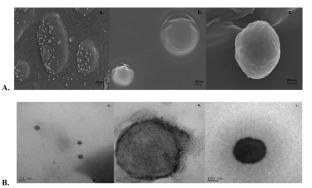Neuropeptide Y (NPY) occurs in G-protein-coupled receptors and offers targeted effects at the active sites for therapeutic action in various conditions like depression, stress, obesity and cancer. Immune stimulating complexes (ISCOMs) associate peptides with the lipid systems for enhancing antigen targeting to provide site-specific action and B-cell response. The present study focused on the encapsulation of NPY in ISCOMs to comprise dual action in the form of immunity modulation and management of breast cancer by arresting G0/G1 phase. The colloidal ISCOMs were prepared by coupling method and further optimized by Box-Behnken design of Design of Experiment (DoE) software. The NPY-loaded ISCOMs (formulation ISCN) were characterized by various parameters with higher % encapsulation efficiency of 87.99 ± 1.87% and in-vitro release of 84.16±3.2% of NPY for 24 h. The study of MTT assay on MCF-7 cell line for formulation ISCN exhibited a significant decrease in the cell growth of 66.41±4.7% at 10 µg/mL compared to plain NPY (52.21±0.04%). The MCF-7 cells showed a significant reduction in cytokine levels in the presence of formulation ISCN wherein TH1(TNF-α) and TH2(IL-10) levels were found to be 25.12±3.11 pg/mL and 35.76±4.23 pg/mL, respectively. The cell cycle study demonstrated that significant cells were blocked in the G0/G1 phase with 57.8±3.02% of cell apoptosis using formulation ISCN. The formulation ISCN was found to prolong t1/2 and increase AUC than plain NPY via intravenous administration due to complex formation with phospholipid. Hence, ISCOMs-based NPY system will be a promising approach for dual action as immunomodulation and anticancer effects by controlling the release of NPY.



